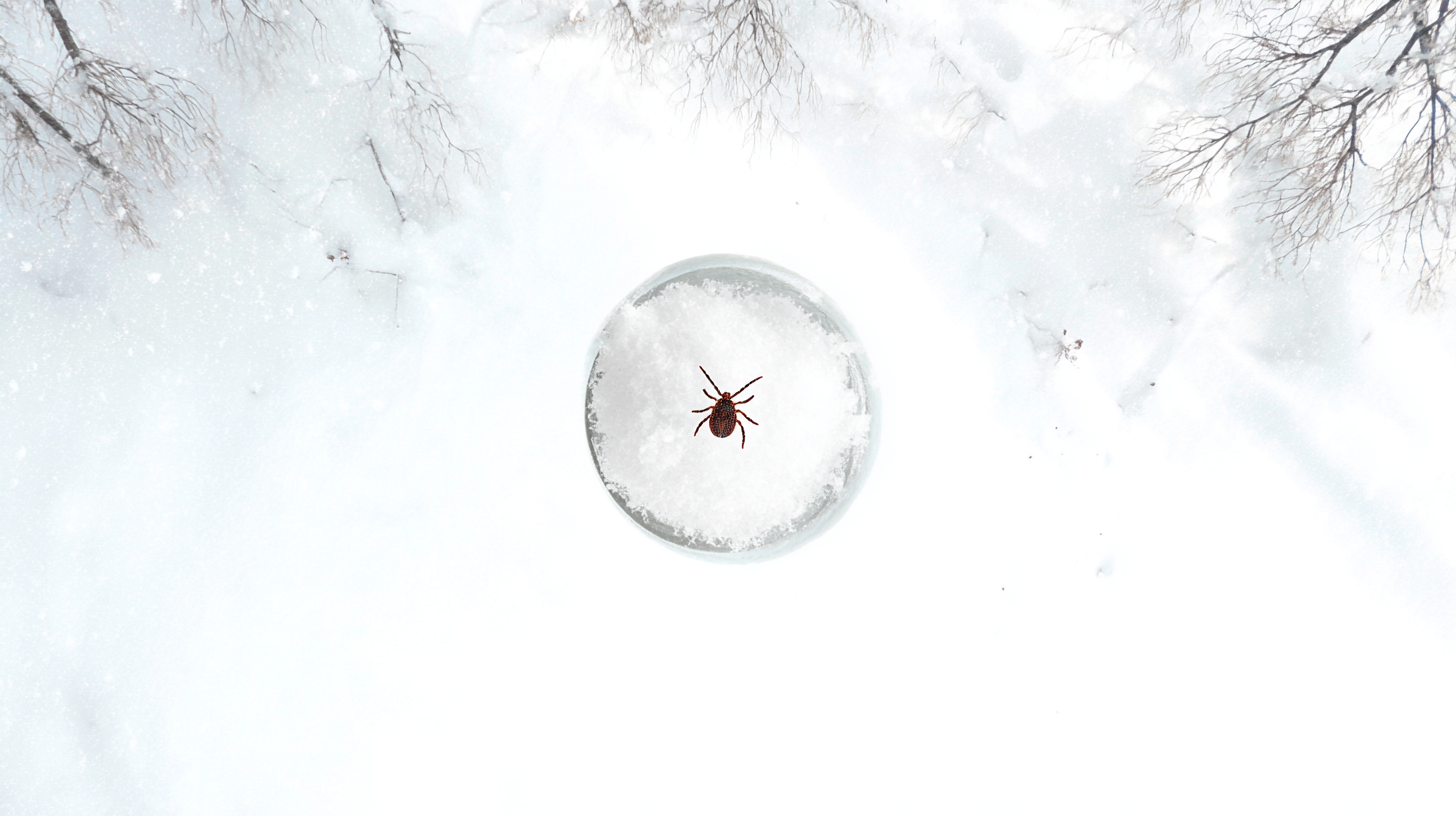Do Ticks Die in the Winter?

If you’ve ever spent time off-grid, you already know ticks aren’t just a summer nuisance, they’re a serious health threat. With diseases like Lyme and Rocky Mountain Spotted Fever on the rise, it’s no wonder many of us breathe a sigh of relief when cold weather hits. But don’t get too comfortable just yet. Do ticks die in the winter?
The short answer: not really.
Ticks Don’t Die! They Hide!
Ticks are survivors. While extreme cold can kill them, most don’t simply drop dead at the first frost. Instead, they do what many survival-minded creatures do: adapt.
Here’s what happens when temperatures drop:
- Adult deer ticks (blacklegged ticks) – the ones responsible for transmitting Lyme disease—enter a state of dormancy. They hide under leaf litter, snow, or burrow into the soil.
- Nymphs and larvae, often too small to notice but just as dangerous, follow a similar path—sheltering in forest debris or attaching to warm-blooded hosts when the opportunity arises.
- Ticks on animals (like deer, mice, and yes, even your pets) may stay active throughout the winter if their host is warm enough.
If the ground doesn’t freeze solid and snow acts as insulation, many ticks actually survive better than in dry, hot summers.
Why This Matters for Preppers
Just because you’re chopping wood or hunting in January doesn’t mean you’re safe from ticks. If the temperature rises above 35–40°F for a few days, ticks can become active, even in the dead of winter.
That means:
- Your bug-out location isn’t tick-proof in winter.
- Late-season hikes or firewood collecting still carry risk.
- Prepping for tick-borne illness is a year-round concern.
How to Defend Yourself
Ticks may not die off in winter, but that doesn’t mean you’re powerless. Here’s how to stay prepared:
- Layer smart: Tuck pants into boots and shirts into pants. Wear light-colored clothing to spot them easily.
- Use permethrin-treated gear: It’s effective and long-lasting—even through snow and damp conditions.
- Inspect after every outing: Yes, even in January. Pay special attention to underarms, waistbands, behind the knees, and scalp.
- Keep animals protected: Dogs and cats can bring ticks into your shelter or cabin. Use vet-approved tick preventatives year-round.
- Clear your perimeter: Remove leaf litter, brush, and tall grasses around your shelter or home base—ticks love moist, shaded cover.
Bottom Line
No, ticks don’t simply die off in winter. They bunker down and wait—just like any survivalist would. And when the weather gives them a chance, they’ll strike.
For preppers, this is just another reminder: Nature doesn’t take breaks. Whether you’re bugging out or hunkering down, stay vigilant. Because in a crisis, the smallest threats often cause the biggest problems.
Before You Go
Joel Lambert’s Navy SEAL Bug-In Blueprint offers no-nonsense advice that anyone—regardless of age or experience—can put into practice. You’ll find out how to:
- Methodically sweep each room if you think someone’s broken in
- Make your home nearly invisible during societal collapse
- Discourage looters without confrontation
- Sidestep common and risky home defense errors
- Muffle your generator to keep a low profile
- Stash supplies in places most raiders never consider
Learn real-world home defense tactics from a seasoned Navy SEAL. These aren’t theories, they’re battle-tested methods that work in high-stakes environments. If they’re effective against trained adversaries, they’ll hold up just fine against looters. From perimeter defense to securing your living space, this guide walks you through how to prepare and protect when things go sideways.
You may also like:

If You Find This in Your Garden, Burn It Immediately
Do This Every Time You Lock Your Door (Video)
How Long Does Flour Last?
Homemade Water Wheel Electric Generator
Best Prepper Books – 9 Books To Survive ANY Crisis!
Read the full article here









